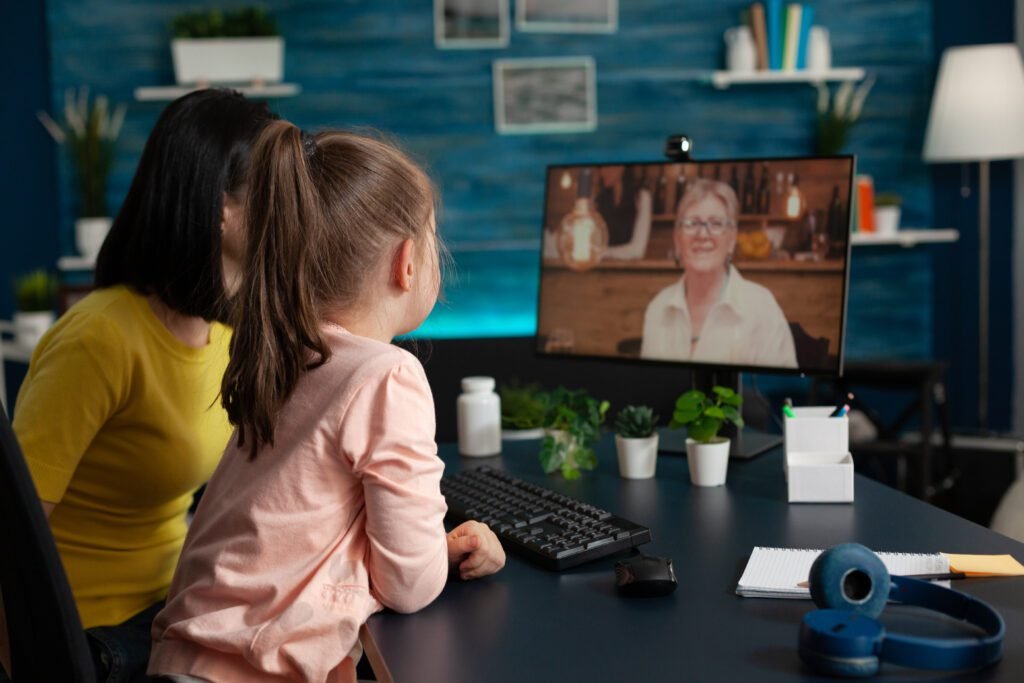Parenting is never easy, but co-parenting after separation or divorce can add layers of stress, especially when you feel like your co-parent is making things harder. You might be putting in the effort to create stability, but their inconsistency, anger, or dismissiveness might feel like it’s undoing all your hard work. It can feel frustrating and unfair. In some cases, it may even feel impossible to move forward without your child getting caught in the middle.
When your co-parent is not emotionally grounded or refuses to be a steady, cooperative presence, it’s easy to feel discouraged or overwhelmed. But you still have power. You can’t control their behavior, but you can protect your energy and make choices that support your child’s emotional safety.
Let’s explore ways you can stay grounded, set healthy boundaries, and continue to show up as the parent your child needs even when your co-parent isn’t showing up the way they should.
Start with Your Own Emotional Regulation
It’s tempting to get drawn into reactive cycles, especially when your co-parent lashes out or refuses to compromise. But when you lose your calm, it gives away your power and shifts the focus off your child’s needs.
Start by practicing strategies that help you regulate your own stress. This might include:
- Taking slow breaths before responding to texts or emails
- Pausing and checking in with yourself before speaking
- Stepping away for a moment when you feel overwhelmed
- Journaling or venting to a trusted support system, not your child
You can’t co-regulate with your child if you’re dysregulated yourself. Your calm presence is what helps them feel safe and supported. It doesn’t mean pretending you’re fine or never feeling angry. It just means giving yourself space to process those emotions so they don’t leak out onto your child.
Set Boundaries Without Justifying
When you’re co-parenting with someone who’s aggressive, inconsistent, or manipulative, it’s important to set boundaries that are clear and firm but not combative. You don’t need to justify or overexplain your limits.
For example, instead of saying:
“I’m not comfortable with you bringing up that topic in front of the kids because it stresses them out and I don’t think it’s appropriate…”
You might simply say:
“I’m not available for that conversation.”
Or:
“I won’t be discussing this any further.”
The less energy you spend defending your decisions to someone who’s not willing to collaborate, the more energy you preserve for your child.
Protect the Energy Inside Your Home
Even if you share custody, the atmosphere inside your own home is entirely within your control. You get to choose how safe, calm, and emotionally nurturing your home environment will be.
Maybe your co-parent talks negatively about you in front of your child. Maybe they disregard your child’s routines or mock the things you’ve worked hard to establish. But when your child is with you, you can be the anchor.
You can create routines, offer comfort, validate their feelings, and make space for them to talk when they’re ready. Even if they’re holding it all in, they’ll feel the difference between a chaotic environment and a calm one.
Don’t Get Pulled Into the Same Cycle
Some co-parents repeatedly push the same buttons. They might pick fights through text, ignore boundaries you’ve set, or bring up old conflicts that aren’t productive.
Your job is not to fix them or to make them agree with you. Your job is to stay grounded in what you know is best for your child. That means you don’t have to take every call. You don’t have to respond to every baiting message. You don’t have to explain yourself repeatedly to someone who doesn’t want to listen.
Instead, you can say:
“I’ll respond when I’m in a calmer headspace.”
Or:
“This message doesn’t require a response.”
You might even need to move communication to a co-parenting app or platform if it helps de-escalate conflict.
Make Peace with What You Can’t Control
Sometimes, the hardest part of co-parenting is accepting that the other parent may never show up the way your child deserves. That grief is real. You may grieve for the family you hoped to create, for the support you thought you’d have, and for the consistency your child needs.
It’s okay to feel sad about that. It’s okay to acknowledge the disappointment. You’re not failing for feeling tired or heartbroken. You’re a parent who cares deeply and you’re carrying a lot.
But your strength lies in your ability to stay grounded despite the chaos. To keep showing up for your child with warmth, consistency, and compassion. That kind of parenting makes a difference, even if your co-parent never changes.
When Your Child Notices the Difference
Children are incredibly observant. Even when they don’t say it directly, they often recognize the contrast between how they’re treated in each home. They may struggle with loyalty conflicts or have a hard time expressing their confusion.
Instead of badmouthing the other parent, try focusing on what your child needs in the moment. You can say things like:
- “It’s okay to have different feelings about what happens at both houses.”
- “I’m here to talk if something felt upsetting to you.”
- “You can always tell me if something doesn’t feel right.”
Over time, your steady presence teaches them that home is not just a place, but a feeling. You’re helping them build emotional resilience that will serve them for the rest of their lives.
You Don’t Have to Do This Alone
At Amy Brown Counseling, we understand the emotional toll that co-parenting can take, especially when your former partner isn’t prioritizing your child’s emotional well-being. We support parents like you in creating healthy boundaries, staying grounded, and navigating the challenges of raising kids in two households.
If you’re feeling overwhelmed, stuck, or exhausted by your co-parenting dynamic, therapy can help you reclaim your calm, build a plan, and feel confident in the way you’re showing up for your child. Reach out today to complete our new client inquiry form and schedule an appointment.
You can’t control your co-parent but you can still offer your child a safe, steady home. And that matters more than you know.



